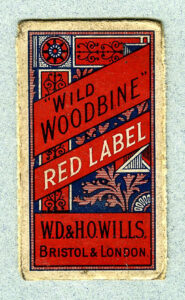‘To delight in the aspects of sentient ruin might appear a heartless pastime, and the pleasure, I confess, shows the note of perversity.’ admits Henry James in Italian Hours (1873). But I too am guilty of the same strange fascination and have been working on a project that I have occasionally called ‘Traces’, ‘Ruins’, ‘Remains’ and finally ‘Endings’. It brings together photographs of animal remains, photographic ‘mistakes’, ephemera and the last sentences of novels in a photobook. The text below is the afterword in the book.

Jude the Obscure, Thomas Hardy
In the beginning is the end and in the end is the beginning. The eternal cycle of being, of making and remaking – remaking until entropy makes the final call and the universe itself becomes an infinite sea of photons. But that’s leaping too far ahead; in between there are endless possibilities. Is an ending an ending? Consider spiritually: most religions don’t believe so – there is another world, good or bad, awaiting the faithful and the unfaithful. Consider aesthetics: an art movement reaches a peak, declines and is replaced by something built on its foundations. Consider science: a hypothesis is expounded, tested found wanting and replaced by another – Newton standing on the shoulders of giants. Consider ecology: the decay of living things feeds succeeding plants and animals, it’s the atom of carbon in your tongue that was once in a dinosaur’s eye.
Endings are transitions, that which appears lost moves into another space. A bookmark retreats into a book that is shelved and languishes until liberated by a curious reader. A piece of ephemera, a fragment of the real world, is discarded and awaits a more receptive eye to save it from pulping or the fire. For found object and finder an ending becomes a beginning: flea markets and antique emporia are full of endings waiting for new beginnings. The waste frames at either end of a roll of film and those mistakes in between are not endings, but opportunities for discovery. The last sentence of a novel (rarely as memorable as the first) is the starting point for speculation and a life changed by however small an amount.
Every ending has a back story – and has a future.
“When you reach the end of what you should know, you will be at the beginning of what you should sense.”
Kahlil Gibrán, Sand and Foam

The Secret Agent, Joseph Conrad
Endings is the third in a trilogy of books that includes Undertow (2019) and Footfall (2021). I don’t consider it to be very successful. Perhaps the concept is flawed and where I imagined connections they don’t really exist. Where there are three image forms it may have been better to use just one and explore it in depth. It proved difficult to find text (the last sentences) that related meaningfully to the images. If the concept stands, perhaps I was in too much of a hurry to do the book and, given time, I might have assembled a more coherent collection material. Finally, Blurb has reduced the quality of paper used in its trade books and the final publication in below the standard I’ve come to expect. A disappointing, perverse, exercise with lessons I’m still trying to absorb.

